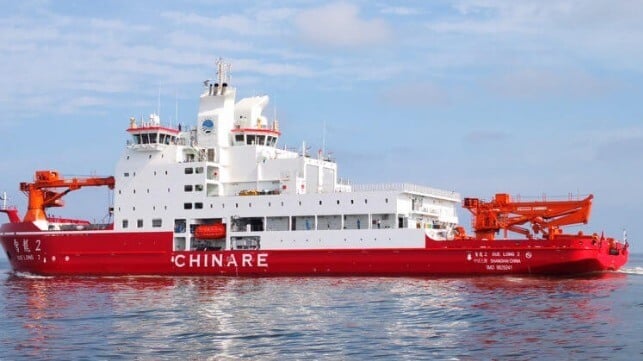New Interest in Norway’s Svalbard from China and Others for Arctic Research

As more countries continue to invest in polar science, the Norwegian Arctic Archipelago of Svalbard is attracting increased international attention, especially among international bodies looking to establish a base for Arctic research. While Svalbard has historically held a unique international status for its proximity to the Arctic Ocean, in the past two months, China, Turkey, and Russia have sent research delegations to Svalbard, with the aim to start joint Arctic studies.
The Chinese delegation to Svalbard visited the Russian science center in Barentsburg last week. They consisted of representatives from the Chinese Arctic and Antarctic Administration (CAA) and the Polar Research Institute from China (PRIC). The basis of the visit was a discussion for an expanded Russian-Chinese research cooperation in the Arctic, according to the Russian Arctic and Antarctic Research Institute (AARI).
China already has an existing Arctic research facility in Svalbard, the Yellow River Station at Ny-Alesund town. This recent visit highlights China’s desire to expand its footprint in Svalbard. The Norwegian Police Security Service (PST) in its national threat assessment for 2024, reported soaring Chinese interest in acquiring real estate in Svalbard. China reportedly wants to build a laser station in Adventdalen.
In addition, for the first this summer, China sent a record three icebreakers to the Arctic region. The vessels are participating in China’s latest Arctic expedition, which includes the country’s largest and most capable icebreaker, Xue Long 2. The others are Zhong Shan Da Xue Ji Di, operated by the Sun Yat-sen University, and the newest icebreaker Ji Di, operated by China’s State Oceanic Administration. This level of deployment comes at a time when China and Russia have joined in developing the Northern Sea Route (NSR).
Meanwhile, Turkey is another country that is seeking to expand Arctic research with plans for a base in Svalbard. Last month, the Turkish Arctic Scientific Expedition visited Pyramiden, a former mining town in Svalbard that proposed to host an international Arctic station. Russia’s state-owned mining company Trust Arktikugol wants to develop the station in partnership with BRICS countries (Brazil, India, China, and South Africa), including friendly states such as Turkey and Thailand.

that matters most
Get the latest maritime news delivered to your inbox daily.
But these plans are not without controversy as Norway, a NATO member, seeks to regulate these scientific activities in Svalbard. The NATO alliance is skeptical of Russia’s Arctic expansionism, which could serve military purposes.
In this regard, Norway in May published a new Svalbard white paper, which seeks to limit the development of new scientific and educational centers in the area. The paper proposes the establishment of the Svalbard Research Office, which will coordinate foreign study projects.
